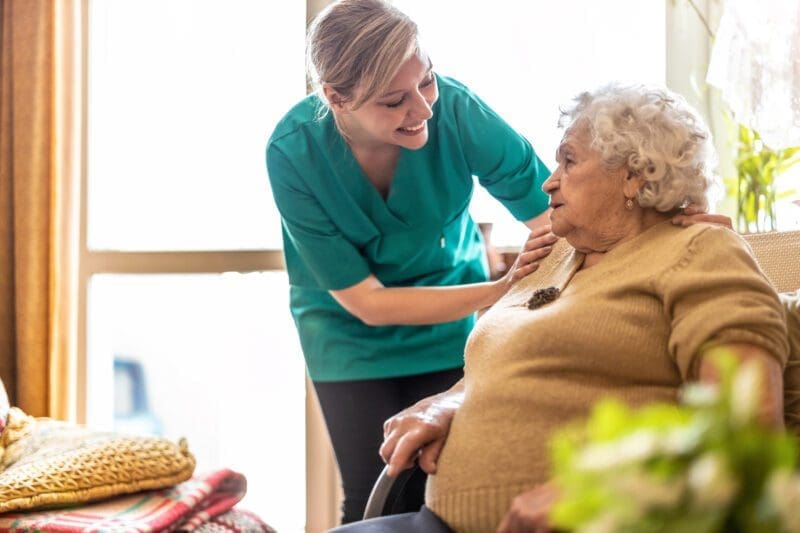What qualifications do I need to be a Health Visitor?
Everything you need to know about qualifications to become a Health Visitor
Embarking on a career as a health visitor offers a unique and rewarding opportunity to make a significant impact on the lives of families and communities. As frontline professionals in public health, health visitors play an essential role in promoting wellness, preventing illness, and providing vital support during the early years of childhood. With their expert knowledge and compassionate approach, they empower parents with the skills and confidence needed to foster healthy development in their children.
Choosing to become a health visitor means committing to lifelong learning and professional growth. This dynamic field requires not only clinical expertise but also strong communication skills and cultural sensitivity. Health visitors work closely with families from diverse backgrounds, tailoring their guidance to meet individual needs while fostering trustful relationships.
The journey to becoming a health visitor is both challenging and fulfilling. It involves rigorous training that equips you with comprehensive knowledge about child development, family dynamics, safeguarding practices, and community resources. By joining this esteemed profession, you will be part of an invaluable network dedicated to improving public health outcomes across the UK.
If you’re passionate about making a difference in people’s lives through compassionate care and expert advice, then pursuing a career as a health visitor might just be your perfect path.
In this Health Visitor qualifications guide
Qualifications to be a Health Visitor
Becoming a health visitor is a fulfilling and impactful career choice, offering the opportunity to make a tangible difference in the lives of families and communities. Health visitors play a crucial role in providing support and guidance on health-related matters, particularly for young children and their parents. To step into this vital role, one must meet specific qualifications that ensure the highest standards of care.
Firstly, a background in nursing or midwifery is essential. This means you should be registered with the Nursing and Midwifery Council (NMC) as either a nurse or midwife. This foundational experience equips you with the necessary clinical skills and understanding of patient care.
Next, you’ll need to undertake additional training through a Specialist Community Public Health Nursing (SCPHN) programme. This course is designed to expand your expertise beyond traditional nursing roles, focusing on public health principles, community engagement, and preventative healthcare strategies.
The journey to becoming a qualified health visitor also involves developing strong interpersonal skills. As much of your work will involve interacting with diverse individuals across different settings, being able to communicate effectively and empathetically is paramount.
If you’re passionate about promoting public health and have the dedication required for this rewarding career path, becoming a health visitor could be an ideal way forward. With the right qualifications and commitment to ongoing professional development, you’ll be well-equipped to support families in achieving healthier lifestyles.
What qualifications are needed to be a Health Visitor?
To become a Health Visitor in the UK, specific qualifications and responsibilities are associated with each level of practice. Understanding these distinctions is crucial for anyone aiming to make a meaningful impact in this vital field.
Level 2 Health Visitor Qualifications
At Level 2, aspiring Health Visitors typically begin their journey as registered nurses or midwives. This foundational step requires completion of a nursing degree or midwifery qualification followed by registration with the Nursing and Midwifery Council (NMC). At this stage, professionals focus on developing essential skills in patient care and understanding community health needs.
Level 3 Health Visitor Qualifications
Progressing to Level 3 involves undertaking specialised training through a Specialist Community Public Health Nursing (SCPHN) programme. This postgraduate course equips candidates with advanced knowledge and skills necessary for addressing complex family health issues. During this phase, practitioners learn how to conduct assessments, develop care plans, and implement public health strategies effectively.
Level 4 Health Visitor Qualifications
Level 4 represents the pinnacle of expertise within the Health Visitor profession. At this advanced level, individuals are expected to demonstrate leadership capabilities and contribute significantly to policy development and service improvement initiatives. Responsibilities often include mentoring junior staff, leading community health projects, and collaborating with multidisciplinary teams to optimise healthcare delivery.
Each level of qualification not only enhances professional capabilities but also broadens the scope of responsibilities within community healthcare settings. By advancing through these levels, Health Visitors play an integral role in safeguarding public health while providing invaluable support to families across diverse communities.

Professional bodies for a Health Visitor
For health visitors eager to enhance their professional credentials and stay updated with the latest developments in their field, joining a professional body can be immensely beneficial. One prominent organisation is the Institute of Health Visiting (IHV). This body offers a wealth of resources, including access to research, training opportunities, and networking events that can significantly boost your career.
Another key association is the Community Practitioners and Health Visitors Association (CPHVA), which provides support through advocacy, professional development courses, and a platform for sharing best practices within the community. Membership here ensures you are part of a collective voice that influences policy decisions affecting health visitors nationwide.
Additionally, registration with the Nursing and Midwifery Council (NMC) is essential for practice. The NMC maintains high standards of education and practice across nursing professions in the UK. By aligning yourself with these esteemed bodies, you not only demonstrate your commitment to excellence but also gain invaluable support throughout your career as a health visitor.
Training fees to become a Health Visitor
When it comes to training as a Health Visitor in the UK, understanding the financial commitment involved is crucial. The cost of training fees can vary significantly depending on the level of qualification you choose – level 2, level 3, or level 4.
Starting with level 2, this introductory stage provides foundational knowledge and skills essential for those entering the field. While generally more affordable than higher levels, it’s important to budget for tuition fees alongside any necessary materials or resources.
Progressing to level 3 involves a more comprehensive curriculum that builds upon your initial training. This stage often incurs higher costs due to its advanced nature and the depth of expertise it offers. It’s a worthwhile investment for those aiming to deepen their understanding and enhance their professional capabilities.
Finally, level 4 represents the pinnacle of Health Visitor training. This advanced qualification not only demands significant time and dedication but also comes with a steeper price tag. However, achieving this level opens doors to greater career opportunities and positions you as an expert in your field.
In summary, while each step up in qualification requires careful financial planning due to increasing fees, the long-term benefits of investing in your education as a Health Visitor are substantial. The skills acquired at each level not only enrich your professional journey but also profoundly impact the communities you serve.

Getting experience to be a Health Visitor
Becoming a health visitor is a rewarding career choice that allows you to make a significant impact on the lives of families and communities. Gaining experience in this field is crucial, as it equips you with the necessary skills and knowledge to excel. To start your journey towards becoming a health visitor, it’s essential to build a solid foundation in nursing or midwifery. This initial step provides you with practical insights into patient care and community health.
Once you’ve established your foundation, seek opportunities that allow you to work closely with children and families. Roles in paediatrics or community nursing can offer invaluable experience and help you develop the interpersonal skills needed for effective communication and support.
Additionally, volunteering with local health organisations or charities can provide further exposure to community-based healthcare initiatives. This hands-on experience not only enhances your understanding of public health issues but also demonstrates your commitment to improving family welfare – a key attribute for any aspiring health visitor.
By actively engaging in these experiences, you’ll be well-prepared for the next steps in your career as a health visitor, ready to support families through their most crucial stages of life.



